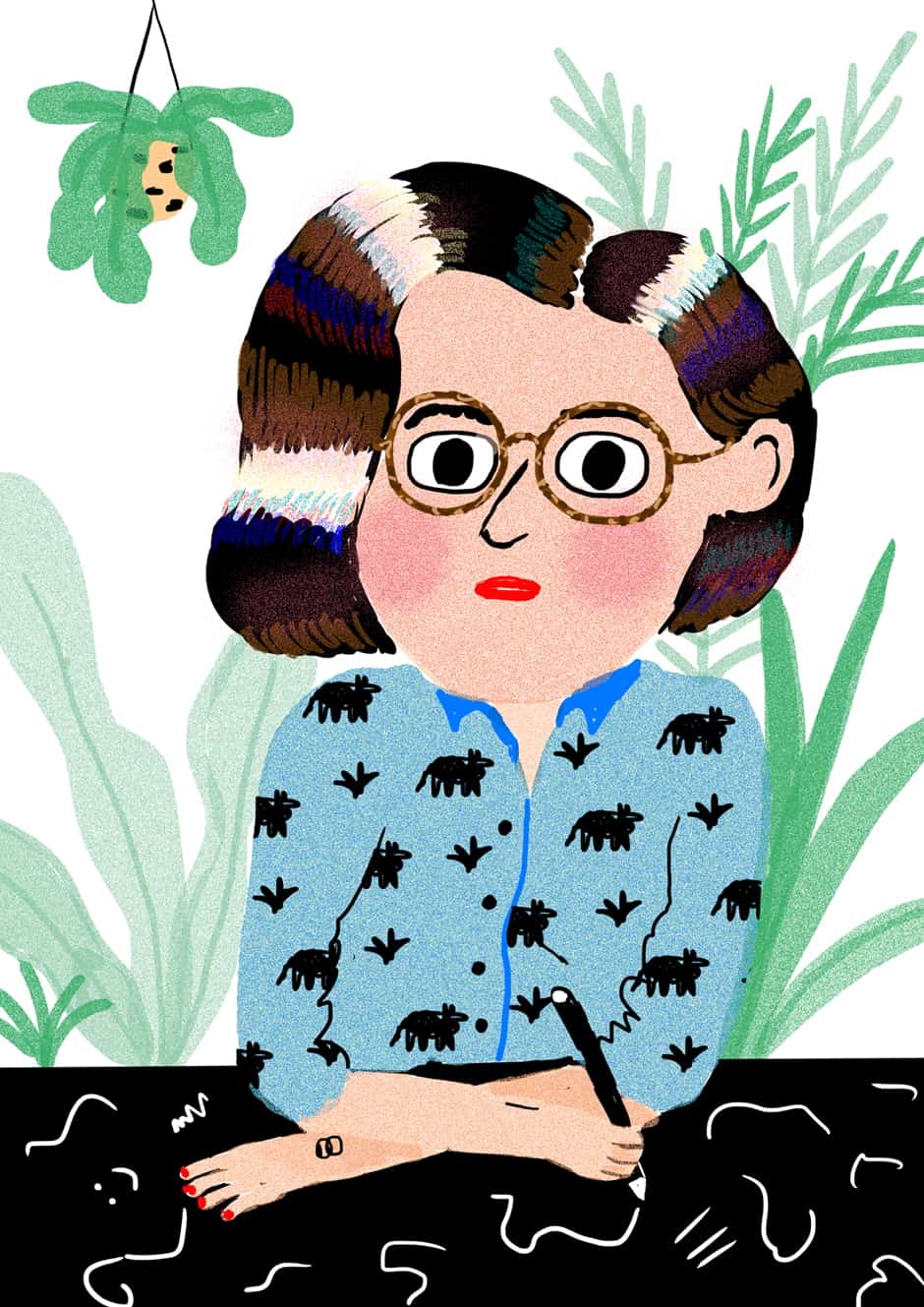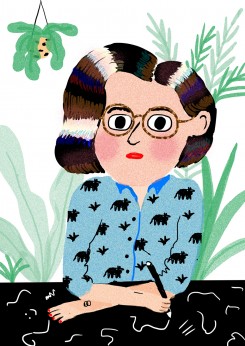Aisha Franz’s latest comic book, Earthling, tells the story of a few short days in the life of female teenage protagonist Mädchen and her mother and sister. An alien visitor makes an apperance, but the book mainly centres around the anxieties that come with being a teenager growing up in suburbia. The strength of the book, and in Franz’s artistry, lies in her ability to tell stories with simple imagery alone.
Last Wednesday, Franz made a stop in Toronto as part of her book tour. The event was presented with the help of Earthling’s publisher, Drawn & Quarterly, local comic book store The Beguiling, and the Goethe Institut in Toronto. The night featured a presentation of Franz’s work and an interview by Toronto-based illustrator and artist Ginette Lapalme.
Franz’s illustration style is, as she describes it, “impatient.” Upon further inspection, the reader will find smudges in some of the panels — these “imperfections” are reflective of Franz’s creative process, which is punctuated by moments of indecisiveness. Her talent lies in being able to depict real life situations in an honest and striking manner.
Initially published in German in 2011 as Alien, Franz began working on Earthling during her final year of art school. Much of the material for the book is pulled from Franz’s own personal experience as a teenager growing up in suburban Germany. In an interview with The Varsity, Franz described her process creating the book as “intuitive and moral,” since it was her first experience creating a comic book. She expressed that drawing and plotting out Earthling was more about responding to ideas she had in her head and playing around with what might work.
For the English publication of her first comic book, Franz had to find an alternative title for Alien. For German readers, “alien” works well because it is a “foreign word and therefore leaves a lot of space for interpretation,” she explained. She went on to say that when choosing “earthling” as the official English title of her book, she, “soon realized that Earthling is more about the experiences of being an outsider looking in, than an actual extraterrestrial being.” She continued, “It is a human, but still a strange and explored being, something all of us feel sometimes.”
Visually, Earthling might come off as a bit grotesque — a little but imperfect, and a little bit discomforting. Still, there’s something appealing and relatable about Mädchen’s story — almost anyone can pick up Earthling, pick out a moment in the plot, and instantly relate to it.



